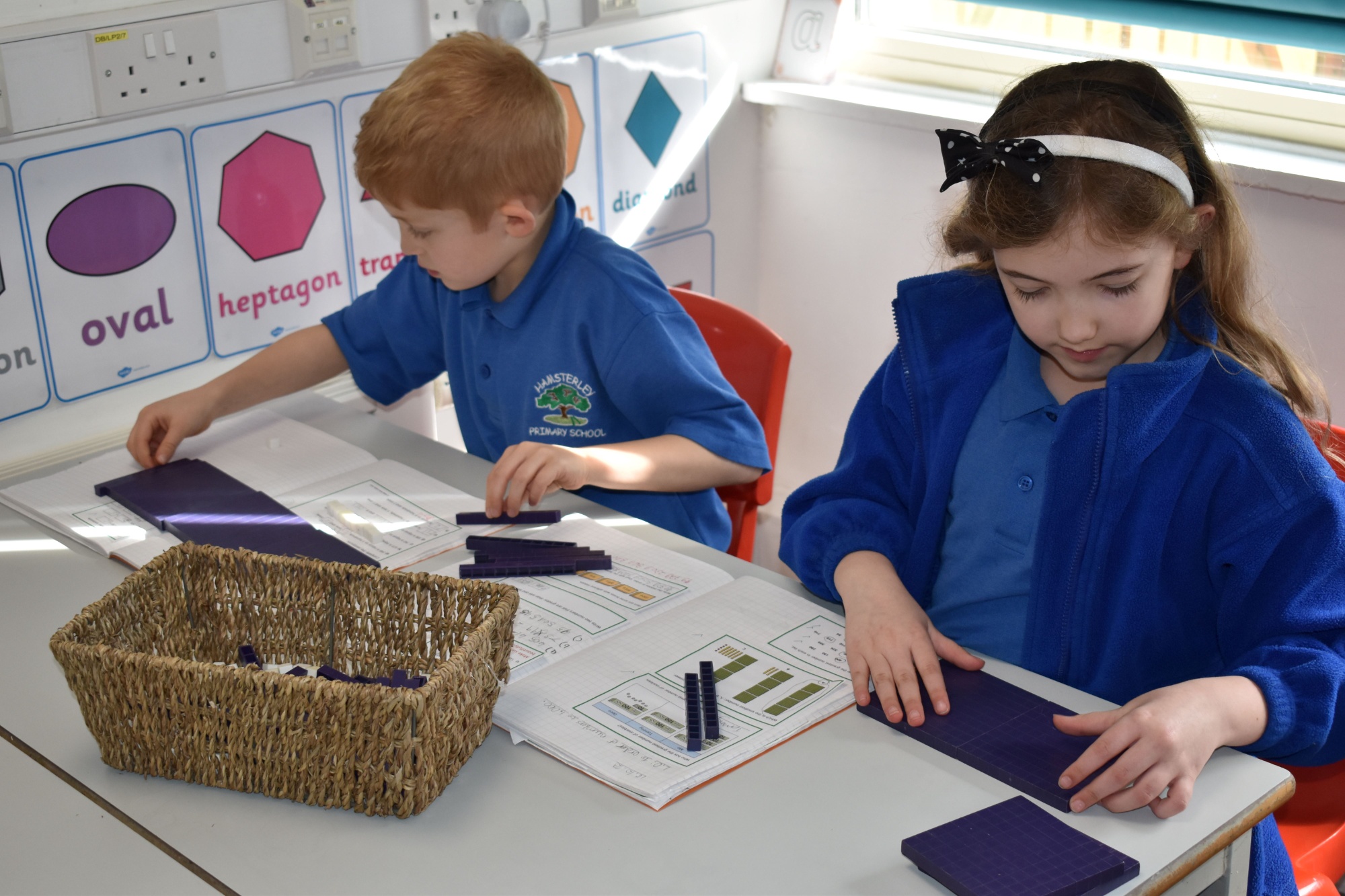

Maths

Intent
In our schools, we are committed to providing a high-quality mathematics education which excites and engages all pupils. Our curriculum allows our pupils to become fluent in the fundamentals of mathematics, which then enables them to explain and reason mathematically by using and applying their understanding and continually building on their skills. The pupils in our school should take risks in their learning and challenge themselves. We endeavour to develop their ability to make connections within the maths programme of study, the whole school curriculum and the wider world. We aim to provide opportunities for our more able mathematicians to be challenged and stretched appropriately, whilst appropriate support and consolidation is built in as necessary.
Implementation
Teachers are encouraged to design lessons using a range of resources, including - but not limited to - the White Rose Maths Scheme Small Steps.
A typical maths lesson provides the opportunity for all children, regardless of their ability, to become confident and capable learners. We are committed to building on prior learning and enabling our children to demonstrate a deep conceptual understanding of each topic that they can develop over time.
Basic maths skills are taught daily, focussing on key mathematical skills including subitising, place value, counting, fact recall and calculation. Children are encouraged to develop fluency in their recall of key facts, and a federation wide approach to the teaching of calculation strategies is deployed.
Reasoning and problem-solving skills are explicitly taught to enable children to become independent learners who are prepared to take risks.
The teaching of multiplication facts continues to be a focus; the applications of these skills are essential for accessing other areas of mathematics.
Class teachers provide high quality maths lessons, ensuring that there is an emphasis on direct teaching, groups/partner work and independent work. We use a range of approaches, including the use of concrete, pictorial and abstract methods, and teaching mathematical concepts through small steps.
Staff are expected to teach and model correct mathematical vocabulary, which scaffolds children’s reasoning and explanation skills – sentence stems and explicit use of key vocabulary are used to develop this.
A range of resources are used to challenge all children and give them the opportunity to reason with their understanding.
In EYFS and Key Stage 1, pupils will develop confidence and mental fluency with whole numbers and counting and place value. They will be able to describe and compare different quantities such as length, mass, volume/capacity, time and money.
In Years 3 and 4, pupils will become increasingly fluent with whole numbers and the four operations, including number facts and the concept of place value. They will develop their ability to solve a range of problems accurately, including with simple fractions and decimal place value. By the end of Y4, they should be secure in their recall of their multiplication tables up to and including the 12 times table. They will develop their ability to identify, draw and describe shapes with increasing accuracy. They will also use measuring instruments with accuracy, making connections between measure and number.
In Years 5 and 6, pupils will extend their understanding of the number system and place value to include larger integers; develop their ability to make connections between multiplication and division with fractions, decimals, percentages and ratio. They will consolidate and deepen knowledge developed in number during their work on geometry and measures. They will classify shapes with increasingly complex geometric properties and describe them with mathematical accuracy. By the end of year 6, pupils ought to be fluent in written methods for all four operations, including long multiplication and division, and in working with fractions, decimals and percentages.
Impact
As a result of our maths teaching, you will see:
- Engaged pupils who are all challenged and enjoy maths
- Confident pupils who can all talk about maths and their learning
- That mistakes are celebrated and used as a tool to progress learning further
- Curious children who are brave when taking on challenges
- Lessons that use a variety of resources to support learning
- Learning that is tracked and monitored to ensure all children make good progress
- Different representations of mathematical concepts
- Collaborative teachers who work together to ensure the needs of every child are met




